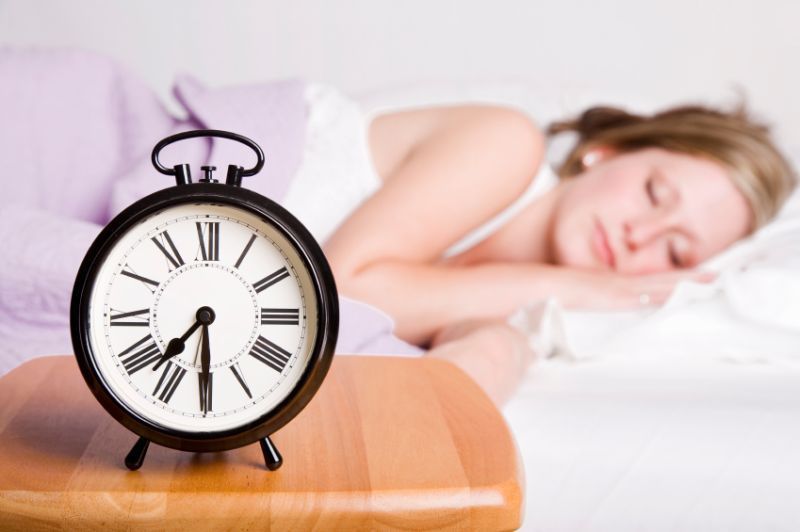Is seven hours enough to sleep?
- Transfer

In this article, Chris Gayomali will talk about how many hours we should sleep - but take this with a bit of skepticism. We want to remind you that the common goal of all articles is to share the author’s experience on how to become more successful and effective everywhere: in your personal life, relationships with friends, yourself and of course at work (whatever you do)!
You are probably not getting enough sleep, but not as much as you think.
Most sleep experts would say that the optimal amount of sleep is from 7 to 9 hours to recover and be productive the next day. However, in a new Wall Street Journal reportit is said that researchers are close to setting a magic number - and this is not 9 hours, or even 8, as previously thought.
According to the publication, this is 7 hours of sleep.
Of course, all the standard warnings here work, and these discoveries need not be taken literally. However, the results are interesting - especially if you are one of those who struggle with lethargy throughout the day.
"The lowest mortality and morbidity rates are for those who sleep seven hours," said Sean Youngsted, a professor at the College of Nursing and Health Innovation at the University of Arizona in Phoenix. "8 hours or more consistently indicated a health hazard."
The report cited one study published in 2002 that used data from 1.1 million people over a 6-year period of cancer research. The researchers found that people who slept 6.5 to 7.4 hours at night generally had lower mortality rates than those who slept less or more. “Previous sleep studies showed that both short and prolonged sleep were associated with higher mortality rates,” said Dr. Daniel F. Kripke in 2002. “However, these studies were not serious enough to distinguish between the 7 and 8 hours of sleep. "
Some researchers caution against studies that warn of the dangers of prolonged sleep. According to the Wall Street Journal, “an illness can cause a person to sleep more or spend more time in bed”, which disproves the results suggesting a connection between higher mortality and longer sleep.
This 7-hour theory actually assumes that all people need the same amount of sleep in order to recover and be ready to meet a new day.
This is not true.
The National Sleep Fund says that sleep needs are individual and depend on a number of different factors:
“Not only different age groups require different amounts of sleep, but also individual characteristics matter. Like the other characteristics with which you were born, the amount of sleep necessary for the best functioning may differ for you and for other representatives of the same age and gender. While you can feel great after 7 hours of sleep, someone else may need 9 hours to have a happy, productive life. ”
Thomas Edison, for example, managed to remain very productive after only 4 hours of sleep. He was also a proponent of multiphase sleep (he even had a sofa in the laboratory), which helped him overcome creative stagnation.
A number of successful modern people also claim that they sleep only a few hours every night: Yahoo CEO, Marissa Mayer, sleeps 4-6 hours; fashion designer Tom Ford sleeps 3 hours a night; and basketball star Kobe Bryant, they say, practices something called a “polyphase sleep schedule," which allows him to sleep for only 3-4 hours, and this time is distributed throughout the day.
If you want to find the best sleep time you need, try the following: go on vacation. Despite changing your time zones, go to bed at a reasonable time (ideally sober) and wake up the next morning without an alarm clock. Are you feeling well? This will give you an approximate figure, taking into account which you can agree on your daily routine.
And if you suddenly wake up after 7 hours, this is also excellent.
PS We recommend another article on the topic - Why should I ignore some tips on saving time.
Translation by Vyacheslav Davidenko, founder of MBA Consult
